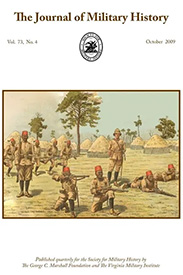Between 1870 and 1945, the Imperial Japanese Army and Navy provided uniquely broad legal protection to subordinates who perpetrated crimes under the orders of military superiors. Legal immunity was provided not only to soldiers who obeyed orders contrary to international law, but also to those who under orders violated domestic standing legislation of the Japanese Army. This gave rise to a so-called “paradox of obedience”: while disobedience among officers was rampant, their subordinates were expected to unquestionably obey their orders, even in rebellion against the Japanese government. This mix of blatant disobedience to the system at large on the one hand, and blind obedience to immediate superiors on the other, was a remarkable feature of the Imperial Japanese armed forces. Drawing on legal codes, court cases and juridic writings, we analyze how this “paradox of obedience” encouraged mutinies as well as atrocities, especially in the 1930s and during the Asia-Pacific War.
On September 17, 1945, following Japan’s unconditional surrender, the Army Ministry in Tokyo prepared a memorandum on Japanese mistreatment of allied POWs (prisoners of war). Anticipating the impending war crime prosecutions, they recommended advising the Allies that the Japanese Army had adhered to an absolute superior orders defense. Therefore, soldiers who had mistreated allied POWs under orders should not be prosecuted, whatever their rank. Even in extreme cases, only those who gave the orders should be held criminally liable.Footnote1
There was indeed an obvious interest in presenting this claim to the Allies—not only to protect as many subordinates as possible, but also to protect the national image and preserve imperial legitimacy, which would be tarnished by mass trials of soldiers. However, absolution from war crimes committed under orders was no Japanese innovation. Until 1944, even British and American law-of-war manuals maintained that soldiers committing war crimes under orders were eligible for legal immunity.Footnote2 The Japanese approach was unique in other ways. Japanese military regulations gave soldiers absolute immunity not only when infringing upon international law under orders, but also when domestic laws, or even military directives, were violated in obedience to military commanders. Indeed, this protection also extended to soldiers who killed Japanese civilians, illegally harmed the military, or even mutinied against the government in Tokyo on the orders of immediate superiors—including when those superiors (by rank or seniority) were not in their chain of command.
The repercussions of this approach, unique in its extremity among modern armies, are the subject of the present paper. We will focus on how this ideology of absolute obedience paradoxically encouraged widespread disobedience, including such resulting in atrocities or other crimes, going as far as to provide immunity to the order-violating soldiers. We will call this “the paradox of obedience.”

